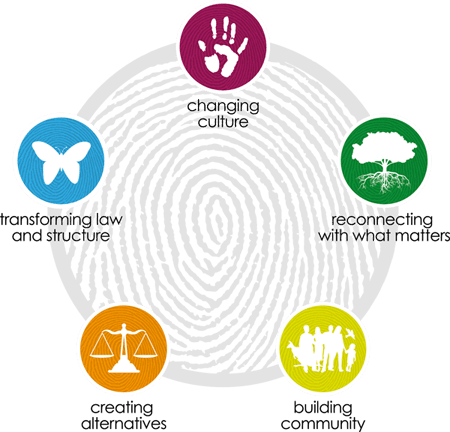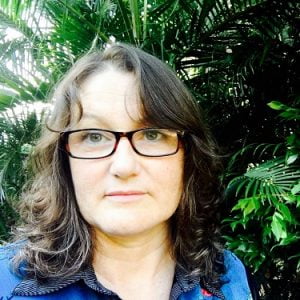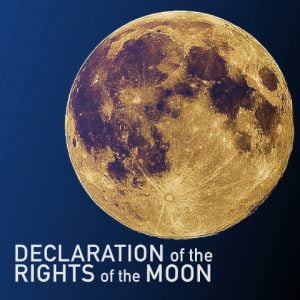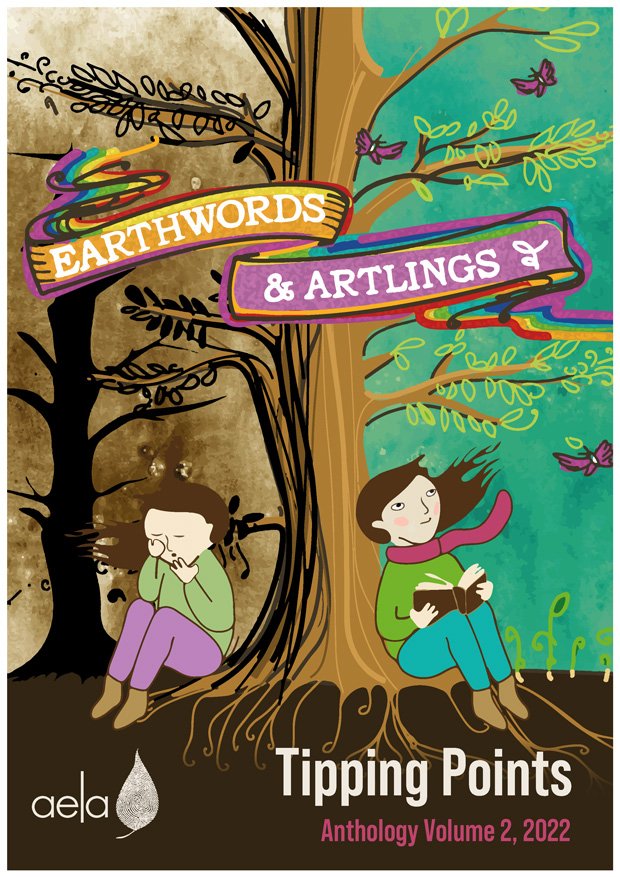AELA's Australian Centre for the Rights of Nature is hosting a writing and symposium series in 2017-2018, titled "Exploring the Legal Status of Nature". The series aims to bring together academics, legal practitioners, First Nations Peoples, environmental and animal protection groups and activists in Australia, to explore innovative laws from around the world and existing legal approaches in Australia. The goal is to create an accessible analysis of existing laws, and explore how we might create systemic change, so that laws nurture, rather than destroy, the health of the living world.
The project will see a series of workshops held in cities around Australia during 2017-2018, to discuss issues relating to the legal status of nature. The workshops will facilitate discussion about the project and build a community of thinkers and writers interested in the topic. There will be a Call for Papers in January 2018, for an edited collection and International Symposium in late 2018.
- View the one-page ELSN summary flyer
Workshops
- Brisbane – 21 November 2017, AELA and QUT
- The Brisbane ELSN workshop has been postponed! It will be run in 2018. Check back for updates, subscribe to the AELA newsletter or like our Facebook Page for the latest information. Find out more about the Exploring the Legal Status of Nature program.
- Sydney – 9 November 2017, AELA, UTS and UNSW
- Explore the presentations and audio from the Sydney ELSN event. Find out more about the Exploring the Legal Status of Nature program.
- Gold Coast – 30 August 2017, c0-hosted with Southern Cross University
- Find more information about the Gold Coast ELSN event, including audio-recordings of the presentations by Judge Preston, Chief Justice of the NSW Land and Environment Court and Adjunct Professor, Mary Graham, First Nations Elder. Find out more about the Exploring the Legal Status of Nature program.
- Melbourne – 11 August 2017, AELA and CREEL/Melbourne Law School
- See more information about the Melbourne ELSN event, including a copy of the final written report, PowerPoint presentations and audio-recordings. Find out more about the Exploring the Legal Status of Nature program.
INTERNATIONAL SYMPOSIUM – Brisbane, October 2018
An International Symposium will be held in Brisbane in late October 2018, to bring together international and national researchers and experts, to discuss the legal status of nature. Confirmed speakers include: Cormac Cullinan – author of ‘Wild Law’ (South Africa), Professor Klaus Bosselman (NZ), Lisa Mead (UK), Geoffrey Garver (Canada), Mary Graham, First Nations Elder (Australia).
Please visit our Symposium webpage for more information.
Further Information About the ELSN Project
Climate change, biodiversity loss and the global ecological crisis are forcing many people to rethink the legal, economic and governance structures underpinning modern industrial societies. Lawyers around the world are exploring innovative ways to use the law to better support the health of the natural world.
One area receiving growing attention is the use of western legal constructs such as legal personhood and rights based approaches, to shift the legal status of nature from human property, to subjects of the law. These legal approaches are seen by many as a way for anthropocentric western laws to be transformed towards Earth centred law and governance. Examples include: the constitution of Ecuador, national legislation in Bolivia, local ordinances in the USA and recent court decisions in Columbia and India which recognise the legal rights of nature; developments in New Zealand under the Treaty of Waitangi, which have seen several ecosystems granted legal personhood and in Australia, the creation of ‘environmental water managers’ in domestic law has seen legal rights allocated to environmental water flows.
But are these ‘rights of nature’ and ‘legal personhood’ laws appropriate for Australia? In Australia, First Nations Peoples’ have practiced ancient first laws for time immemorial; laws which have enabled First Nations Peoples to care for country and maintain ecological health on this continent for millennia. While British colonisation of Australia brought with it the common law system as the foundation for its new colonies – it did not extinguish First Nations Peoples laws. Today, a new generation of lawyers are searching for ways to transform the legal systems of industrialised nations, so they can nurture a harmonious relationship between people and the non-human world. In Australia, this search for pathways to transform the legal system is both challenging and exciting.
Exploring the Legal Status of Nature is a writing and symposium series that aims to bring First Nations Peoples and non-indigenous people together, to critique the impact of the Australian legal system on the natural world and explore how we might create systemic change, so that laws nurture, rather than destroy, the health of the living world.
The project will see a series of workshops held in cities around Australia to discuss issues relating to the legal status of nature. The workshops will facilitate discussion about the project and build a community of thinkers and writers interested in the topic.
There will be a Call for Papers in January 2018, for an edited collection and International Symposium in late 2018.


















